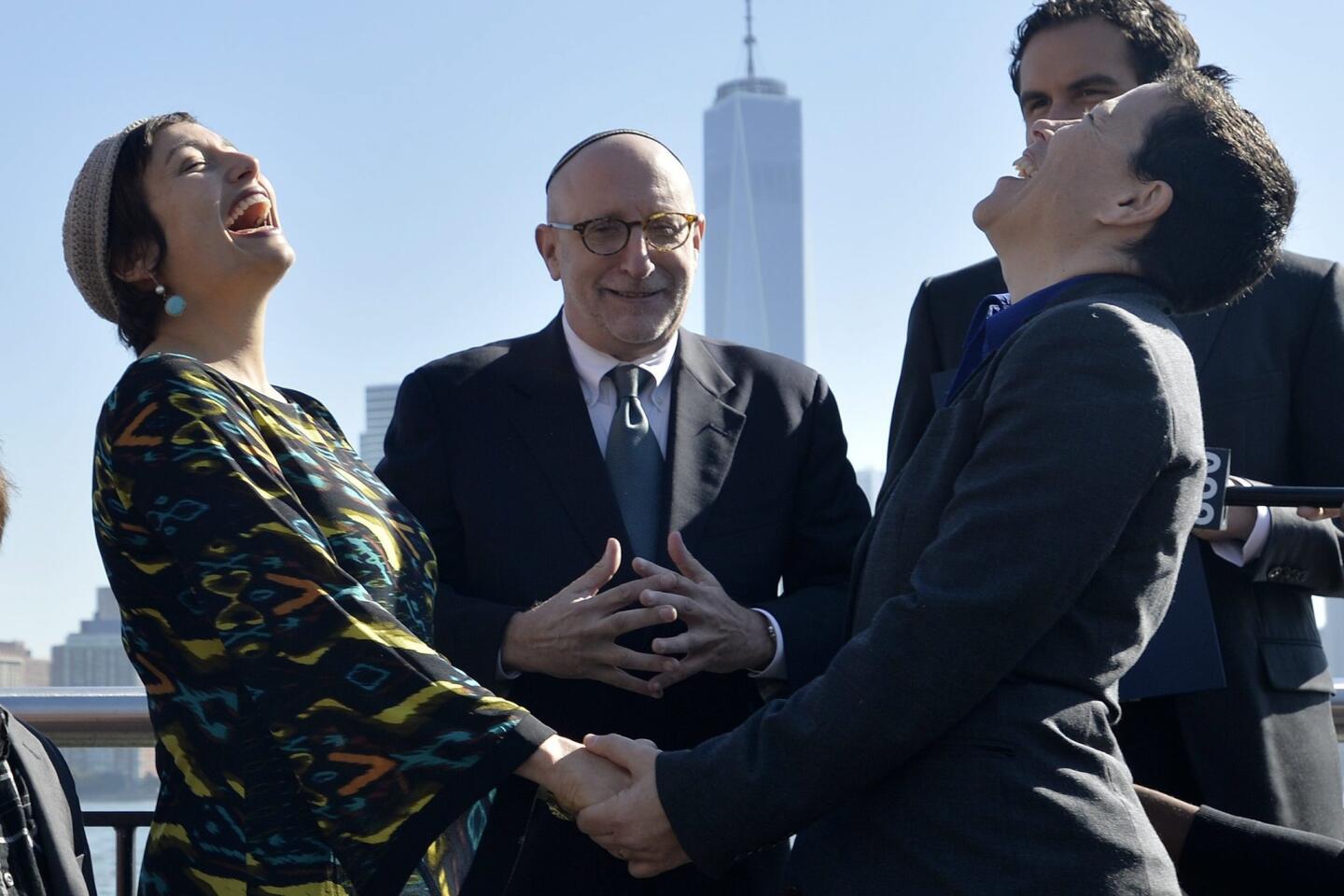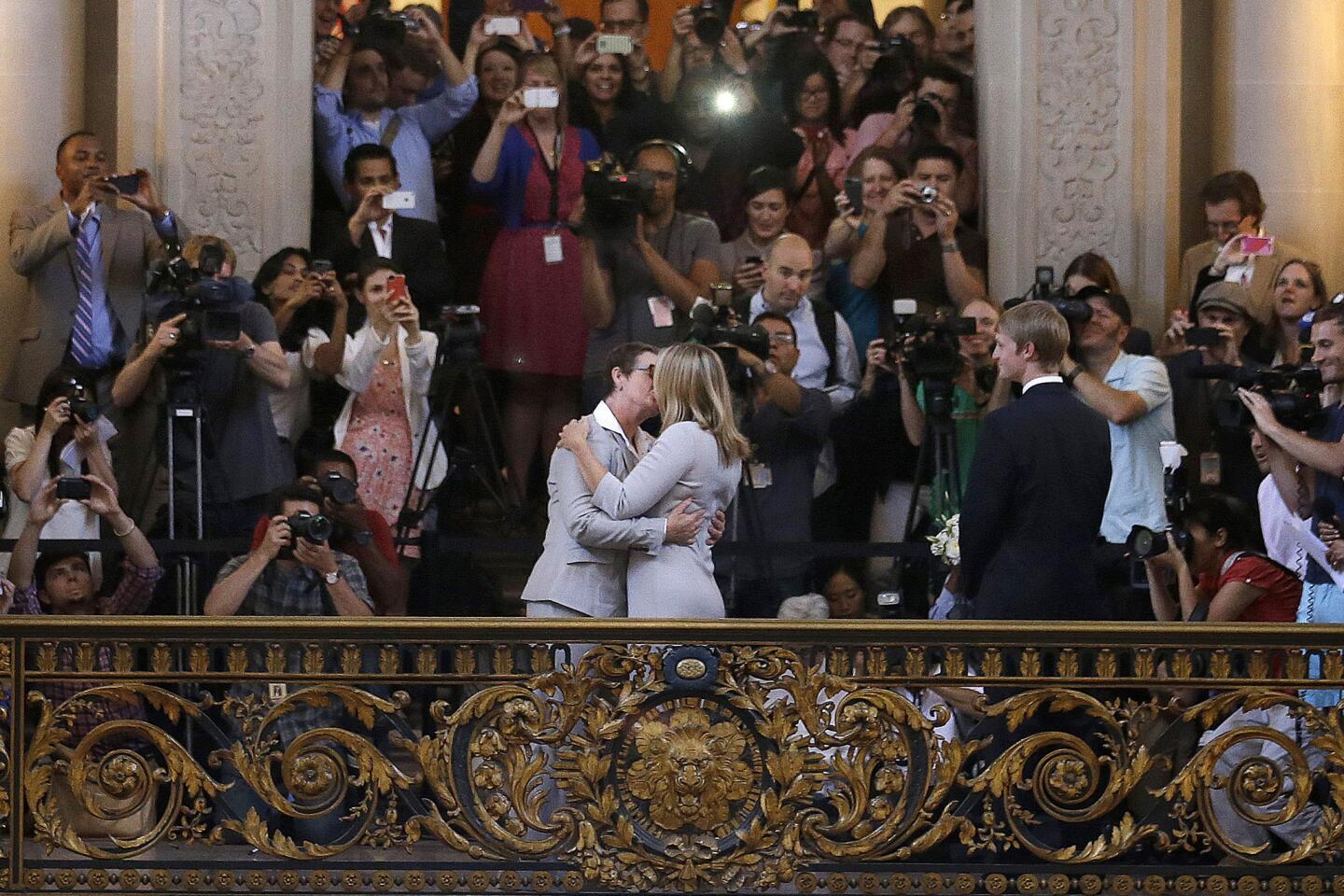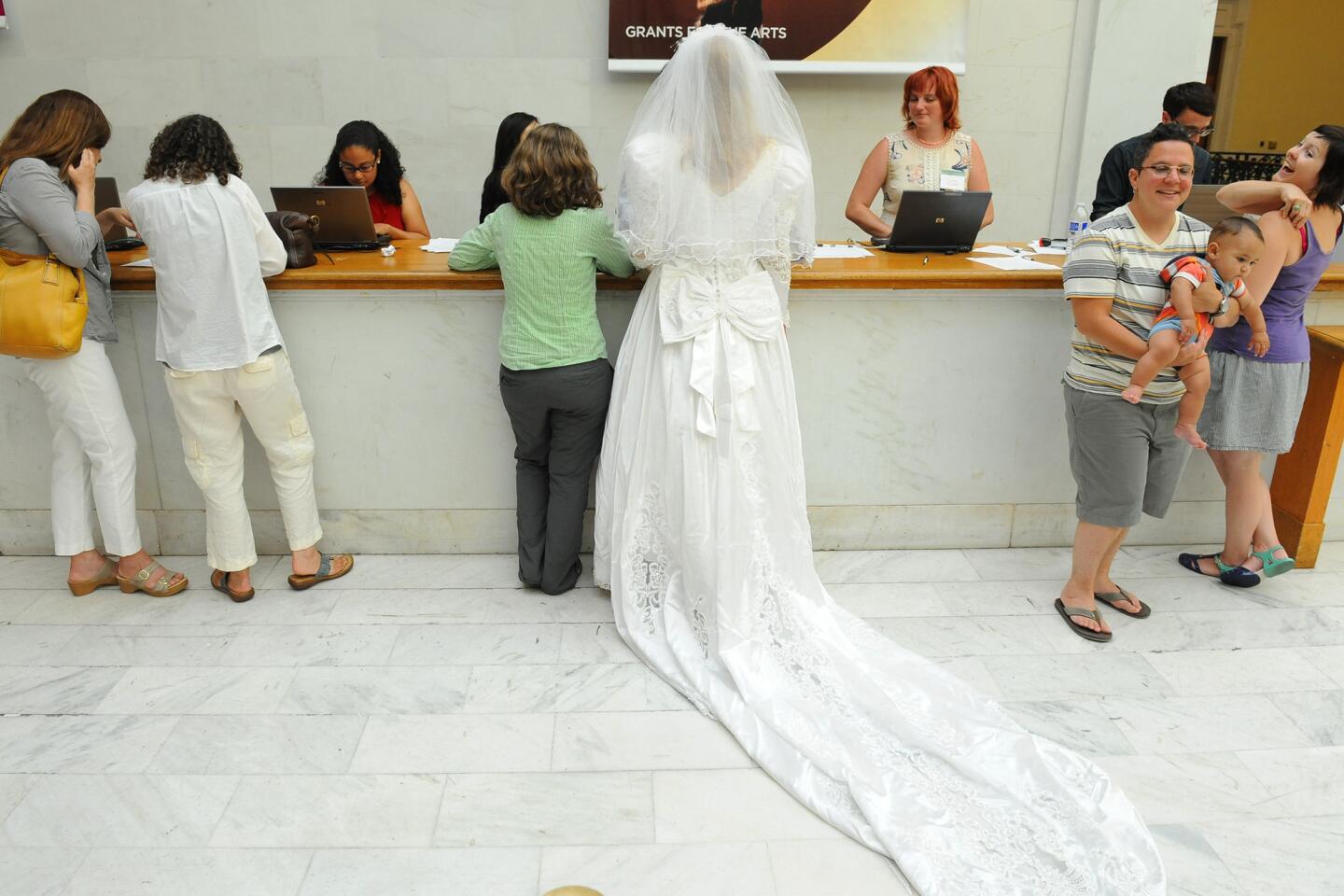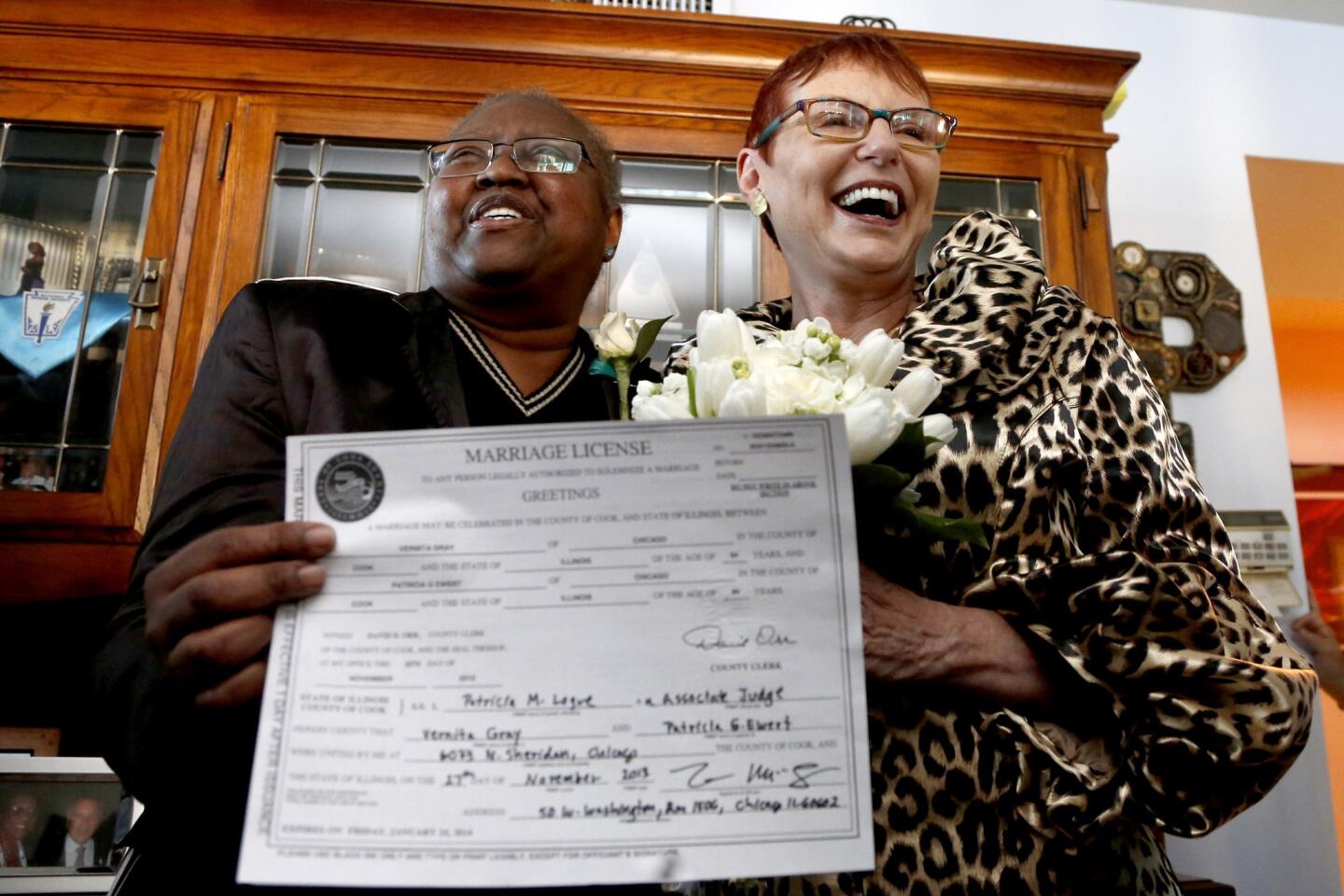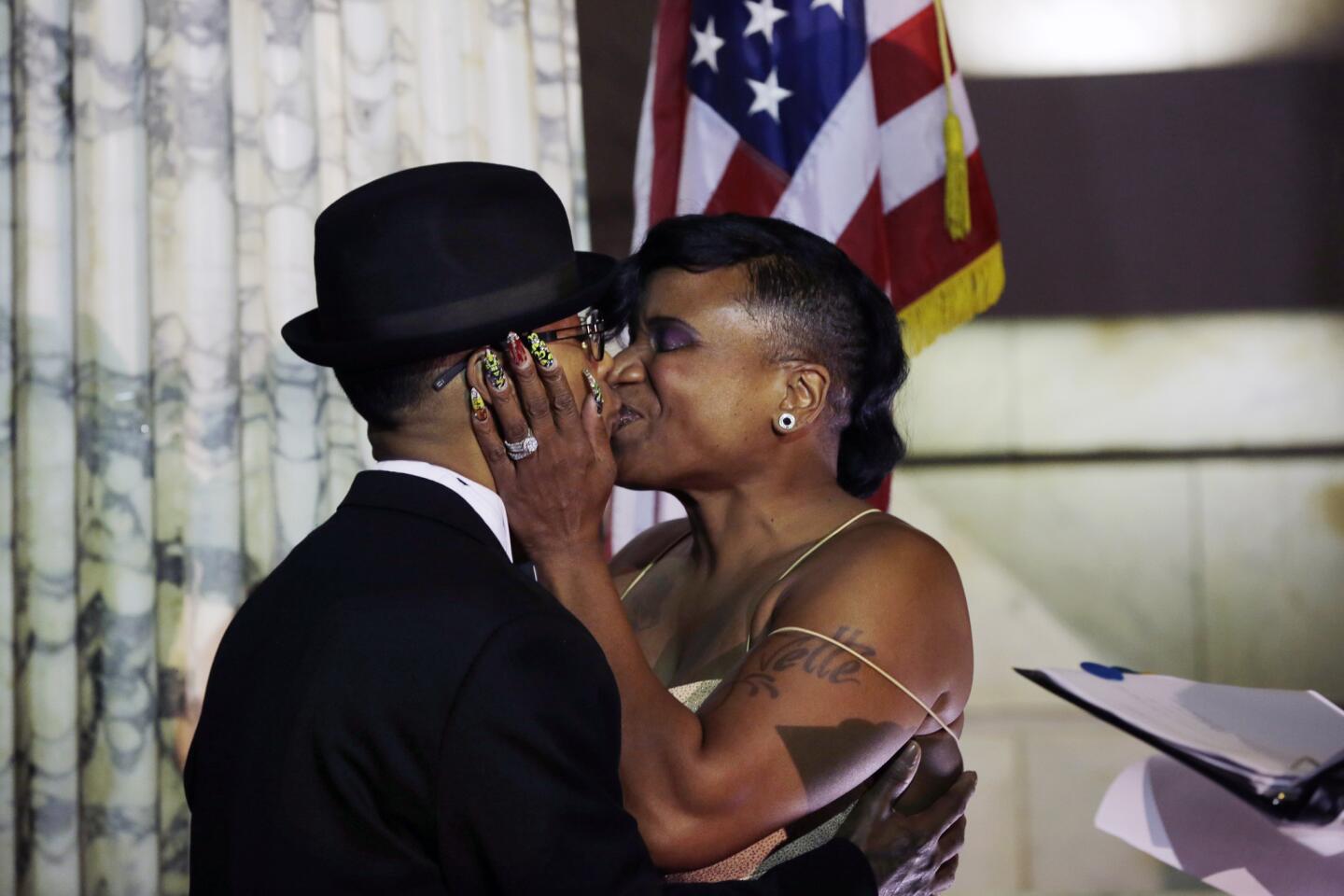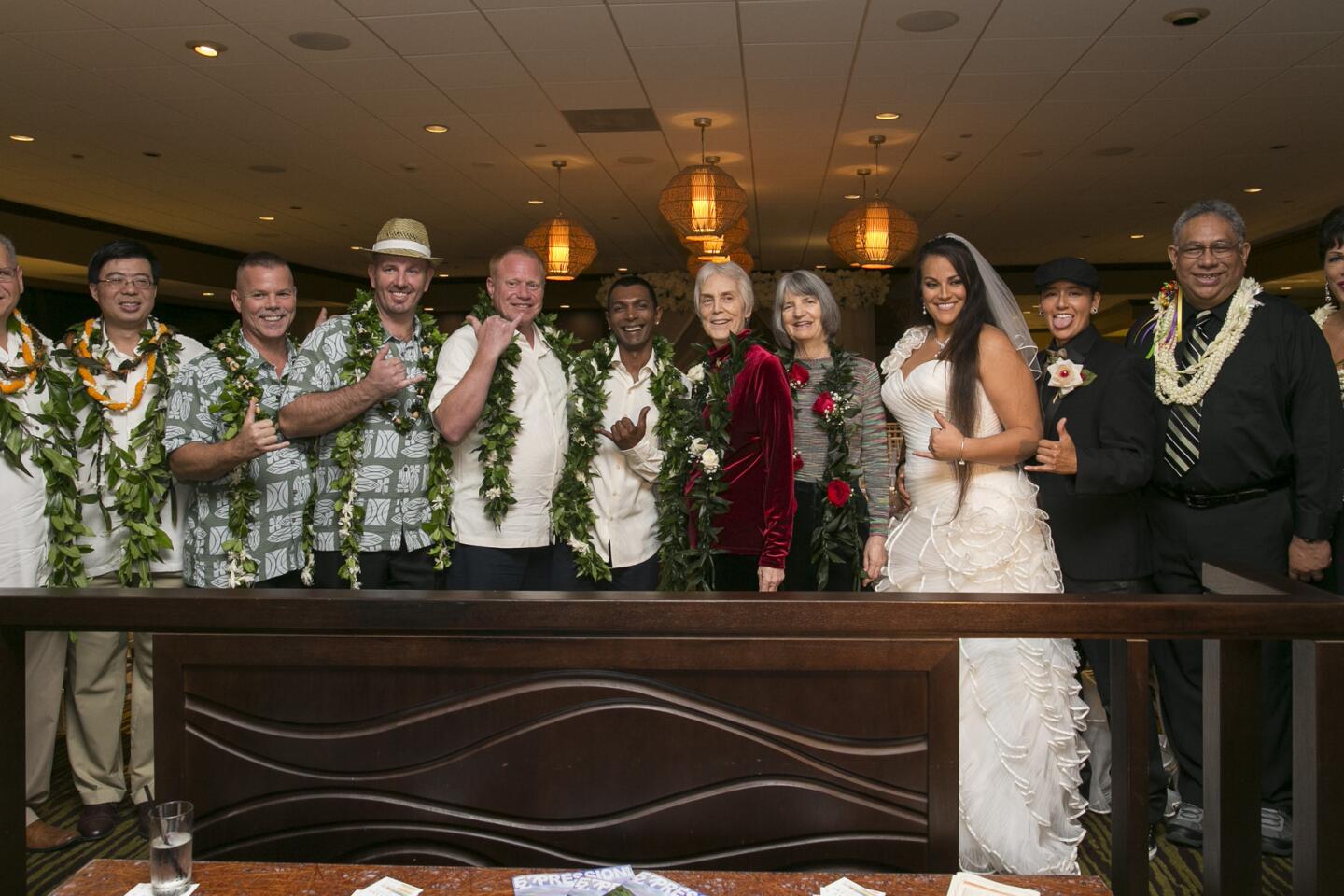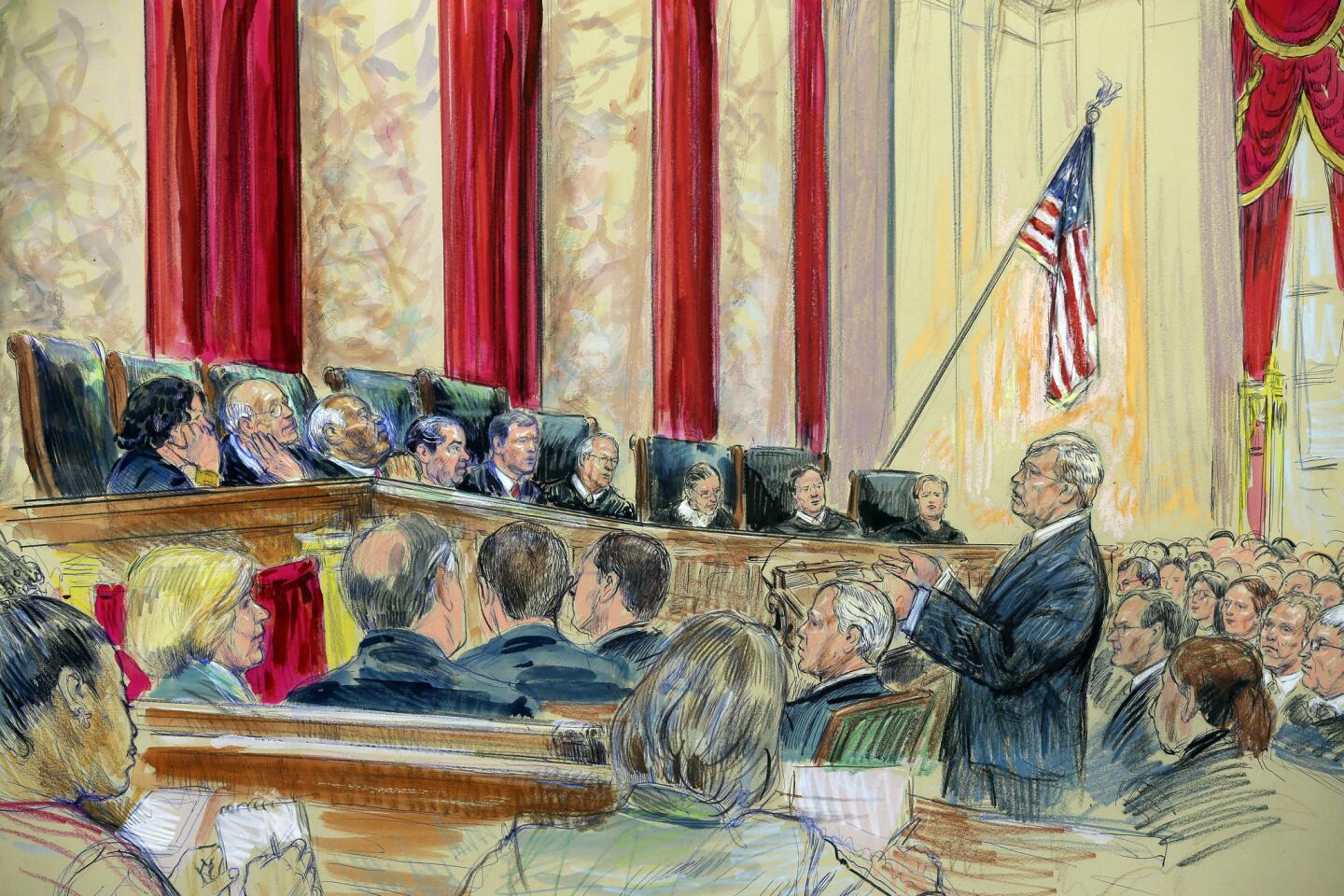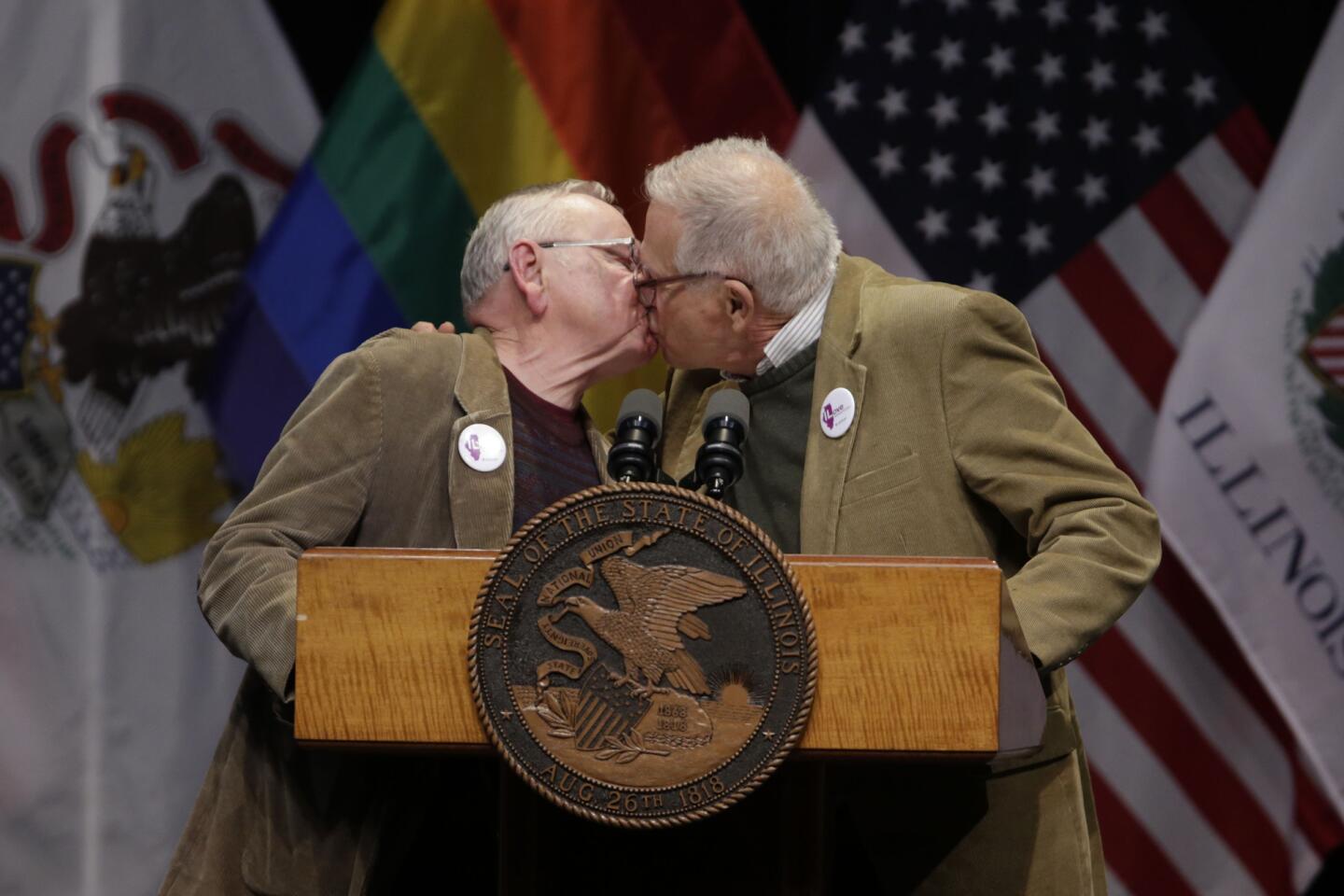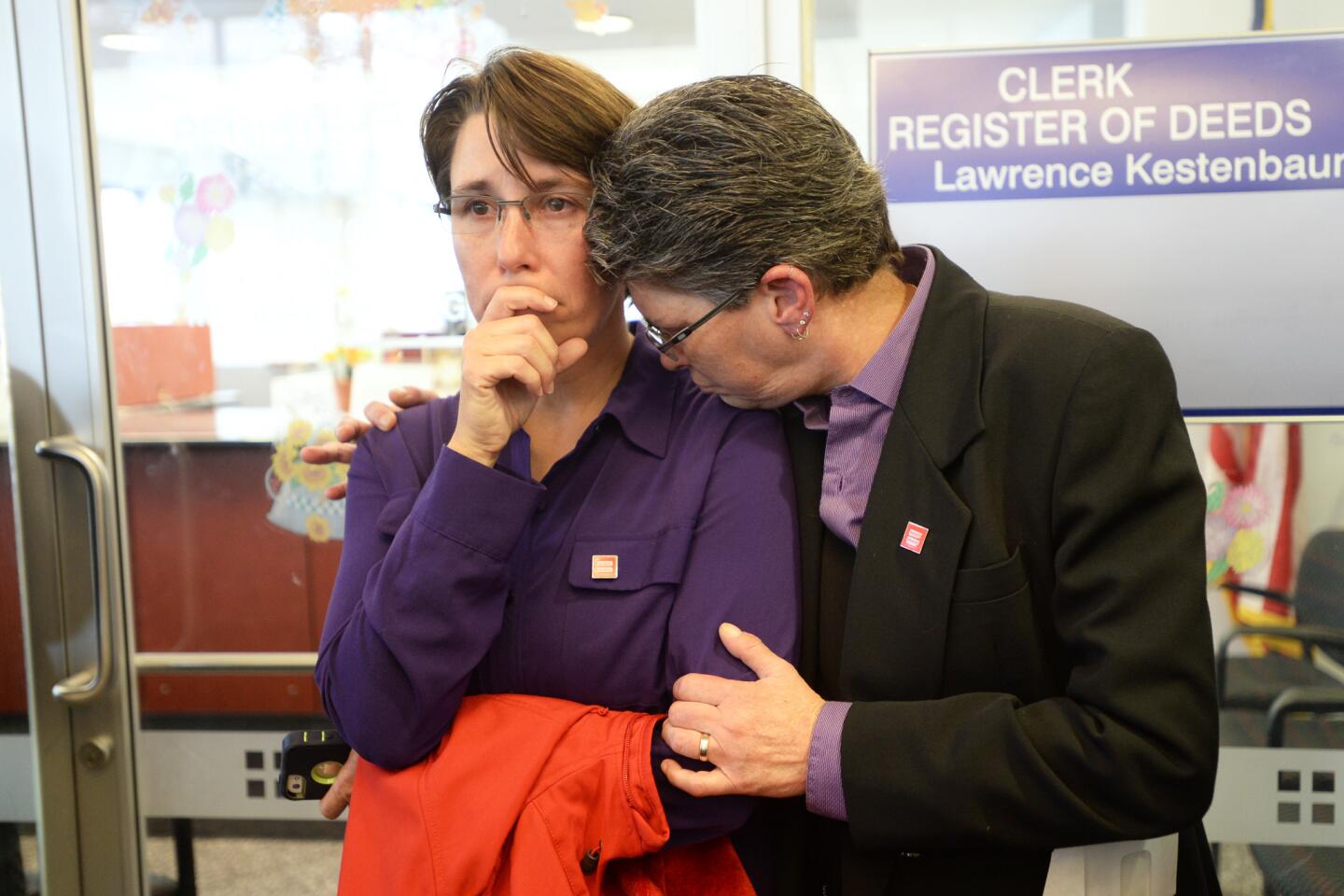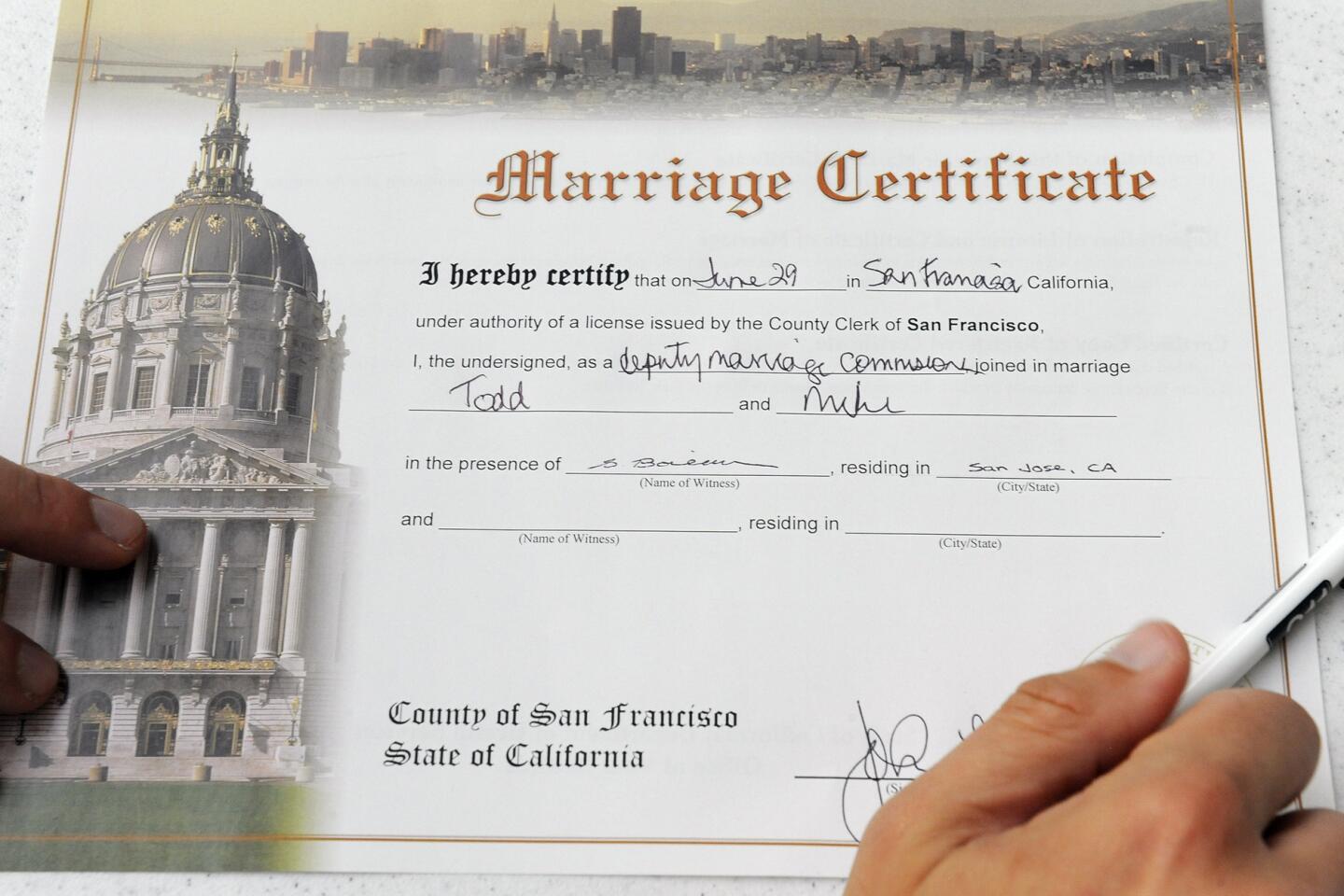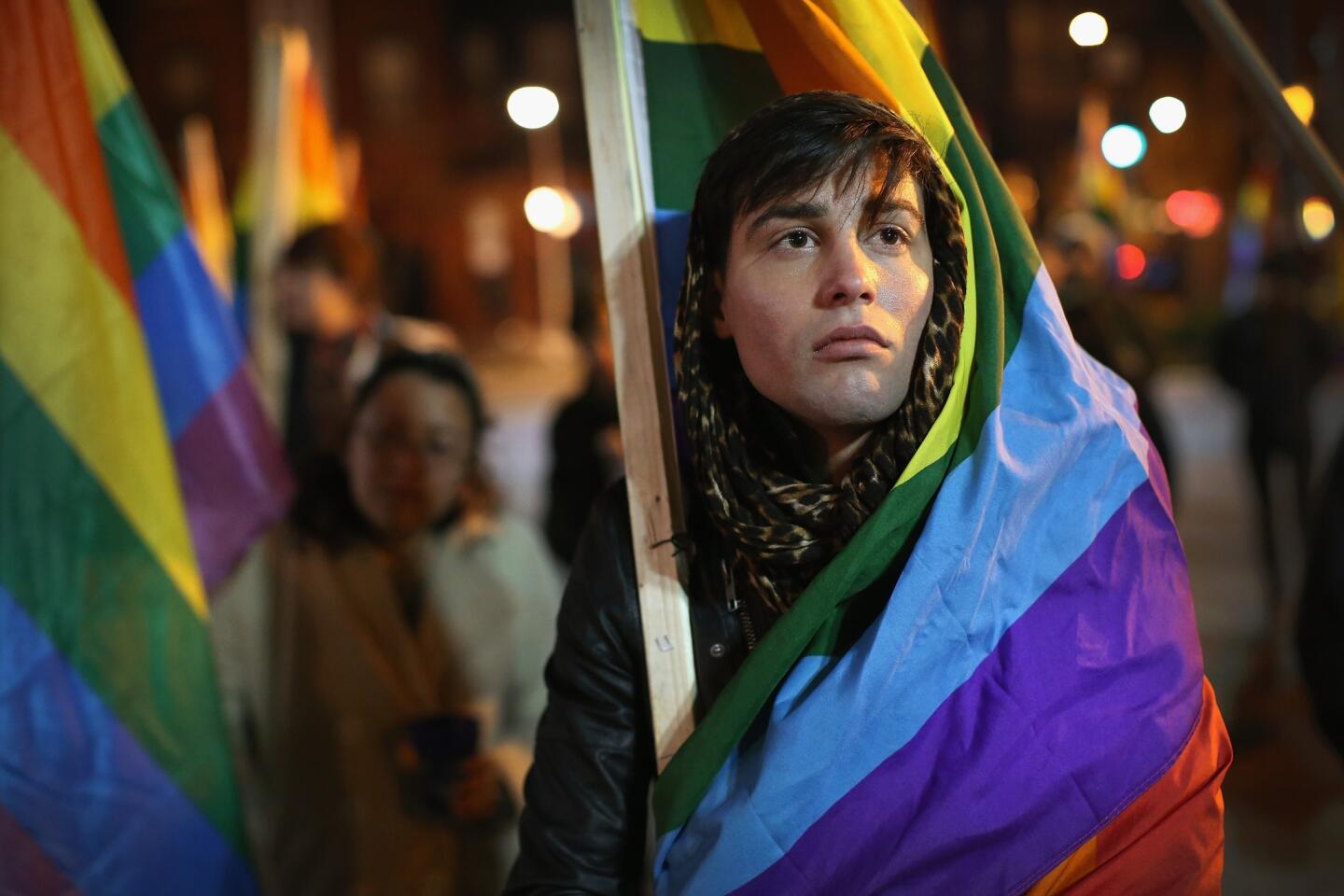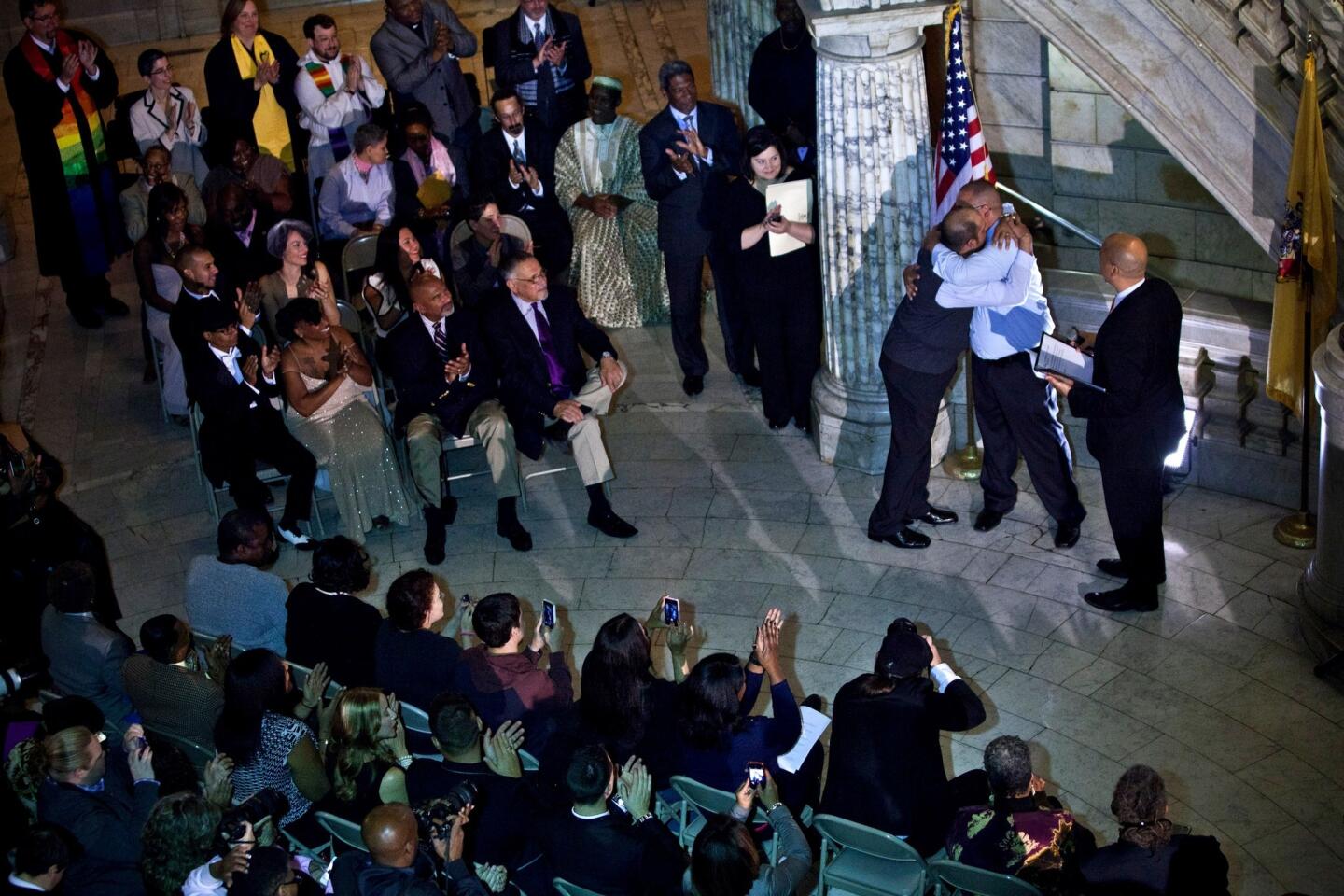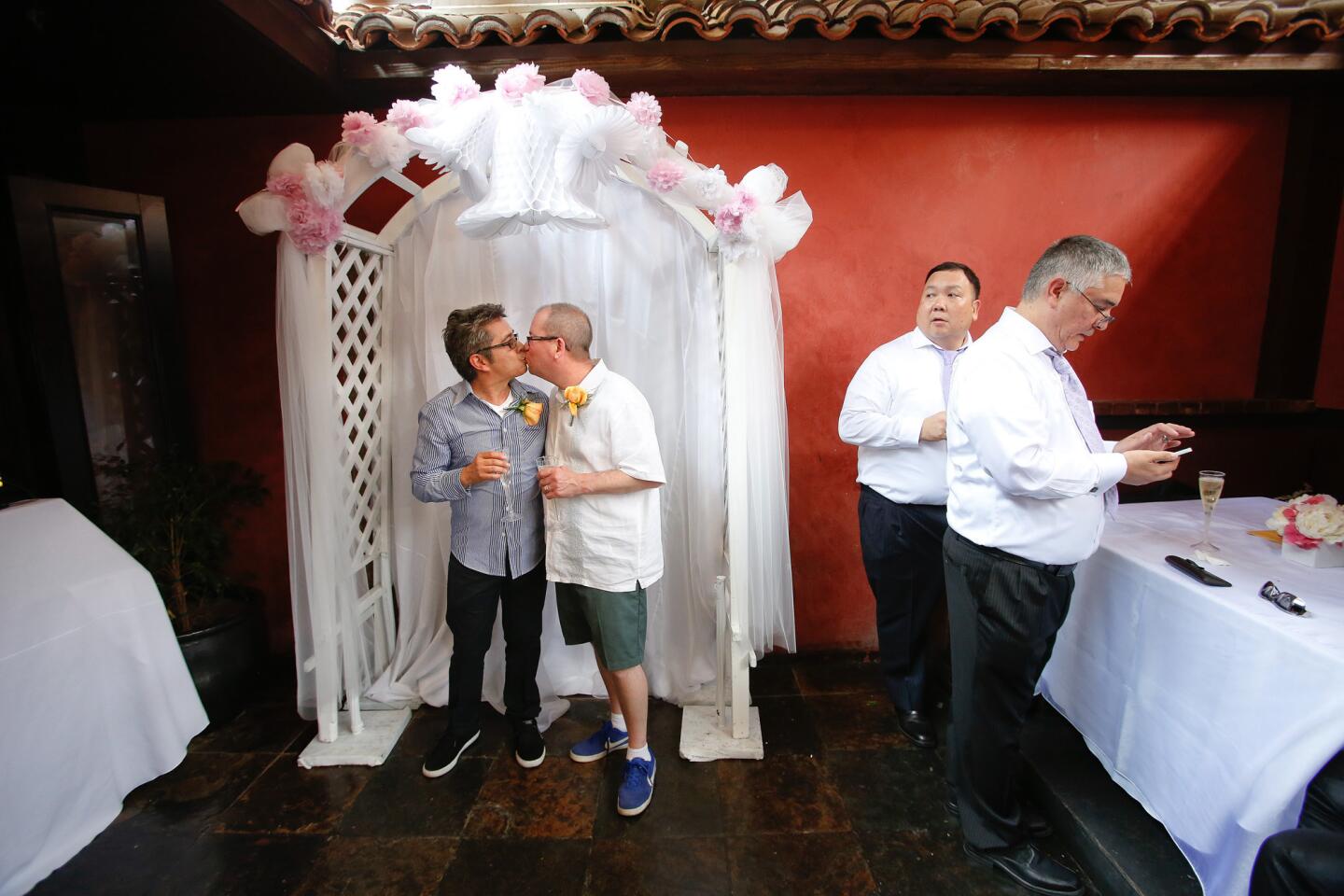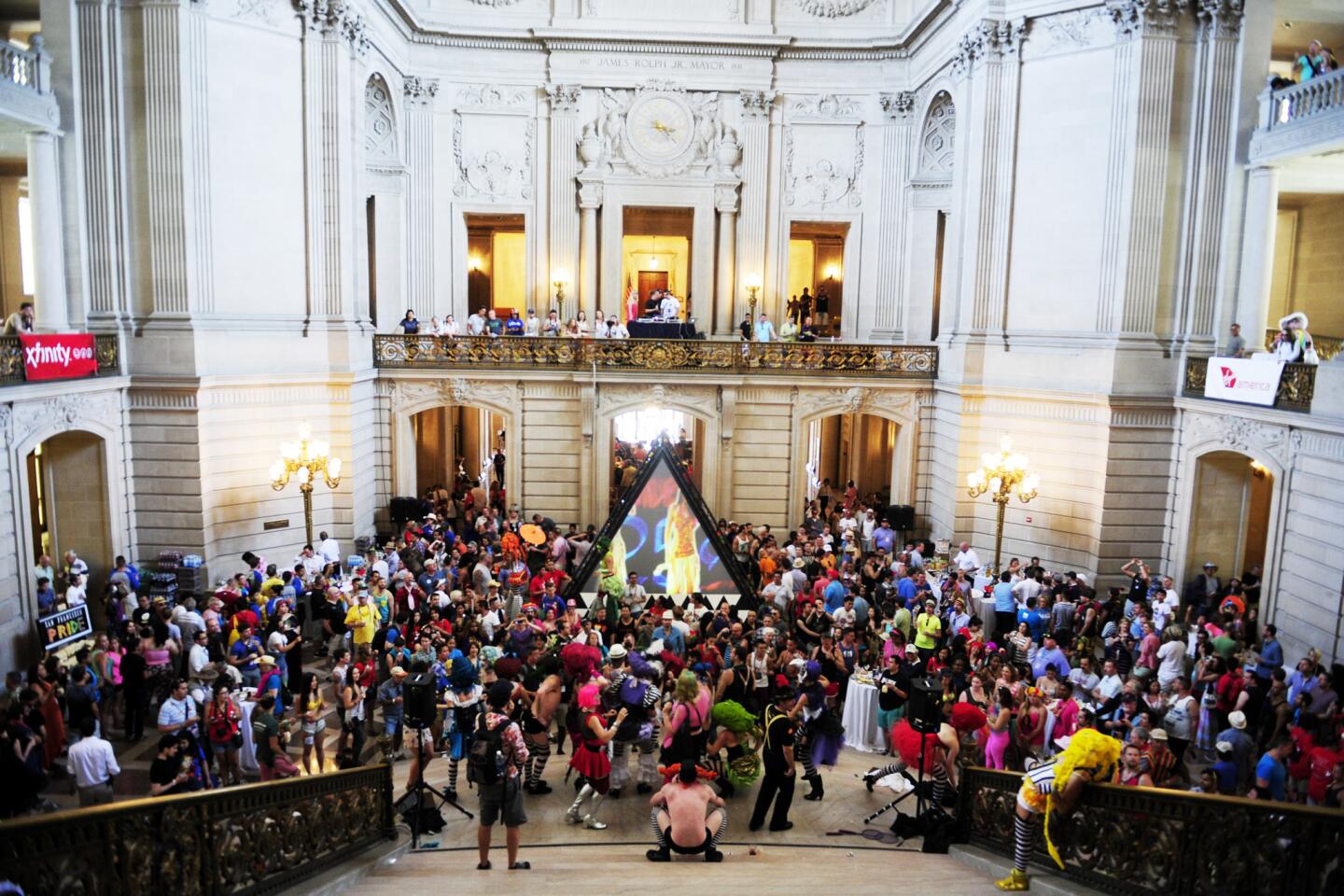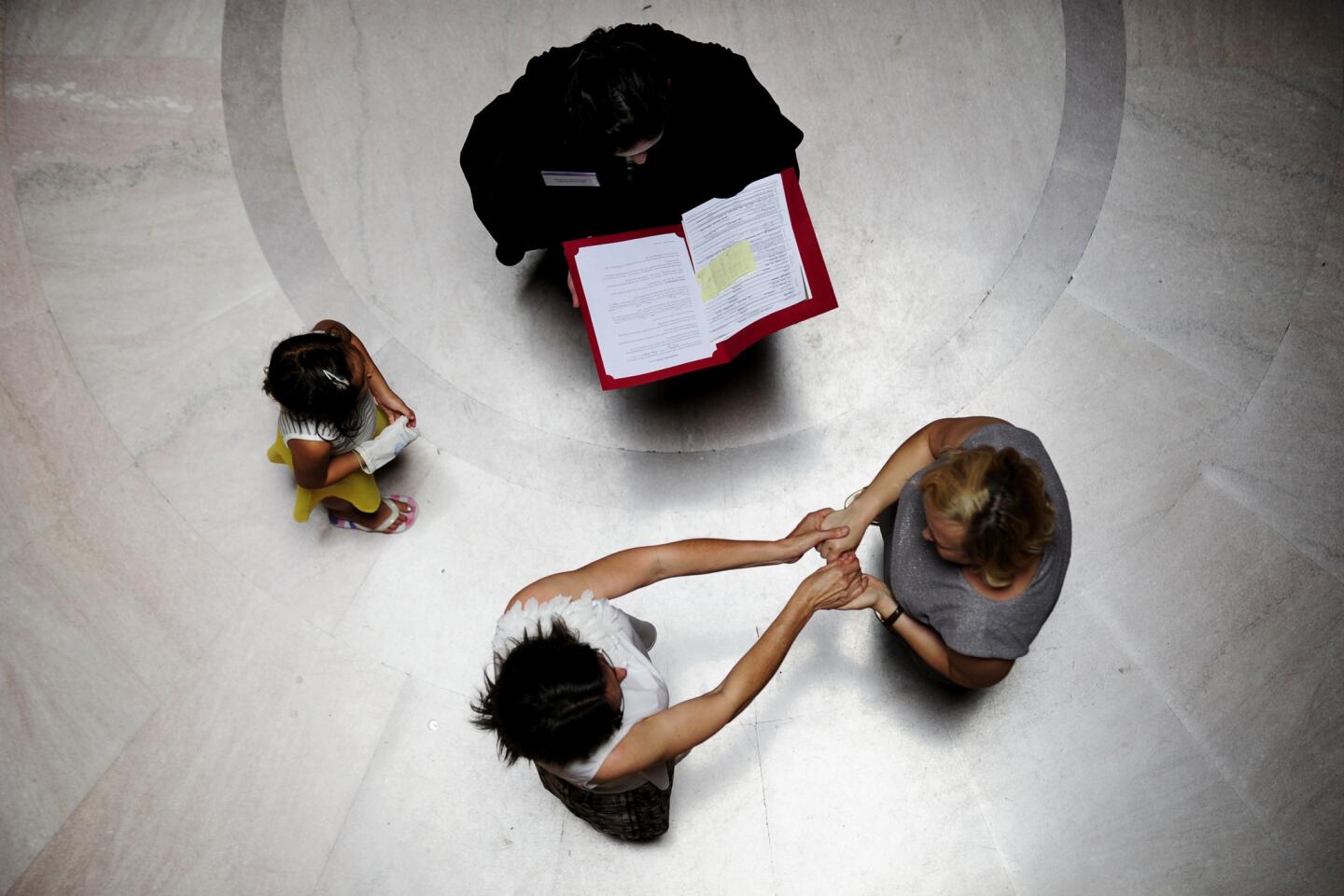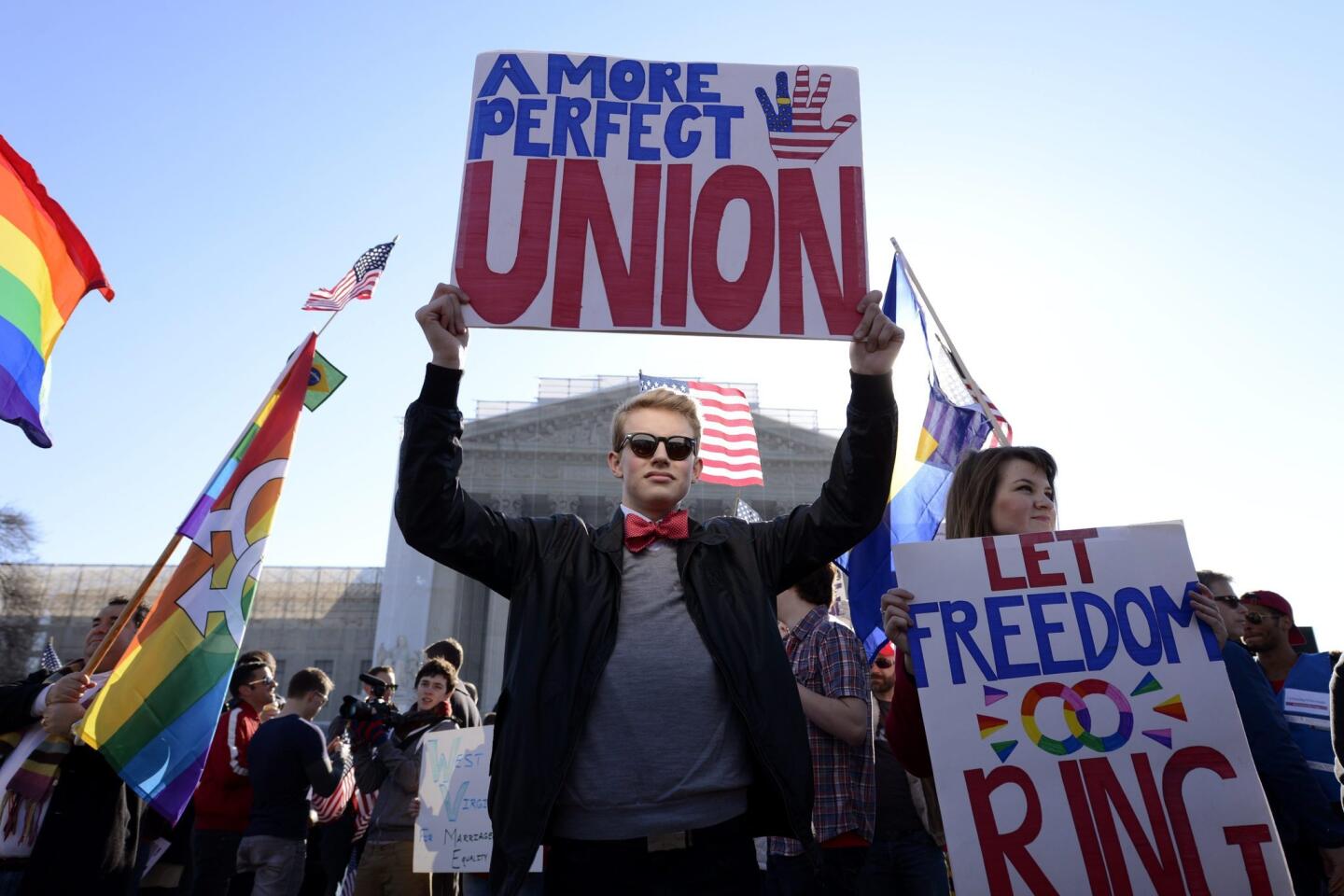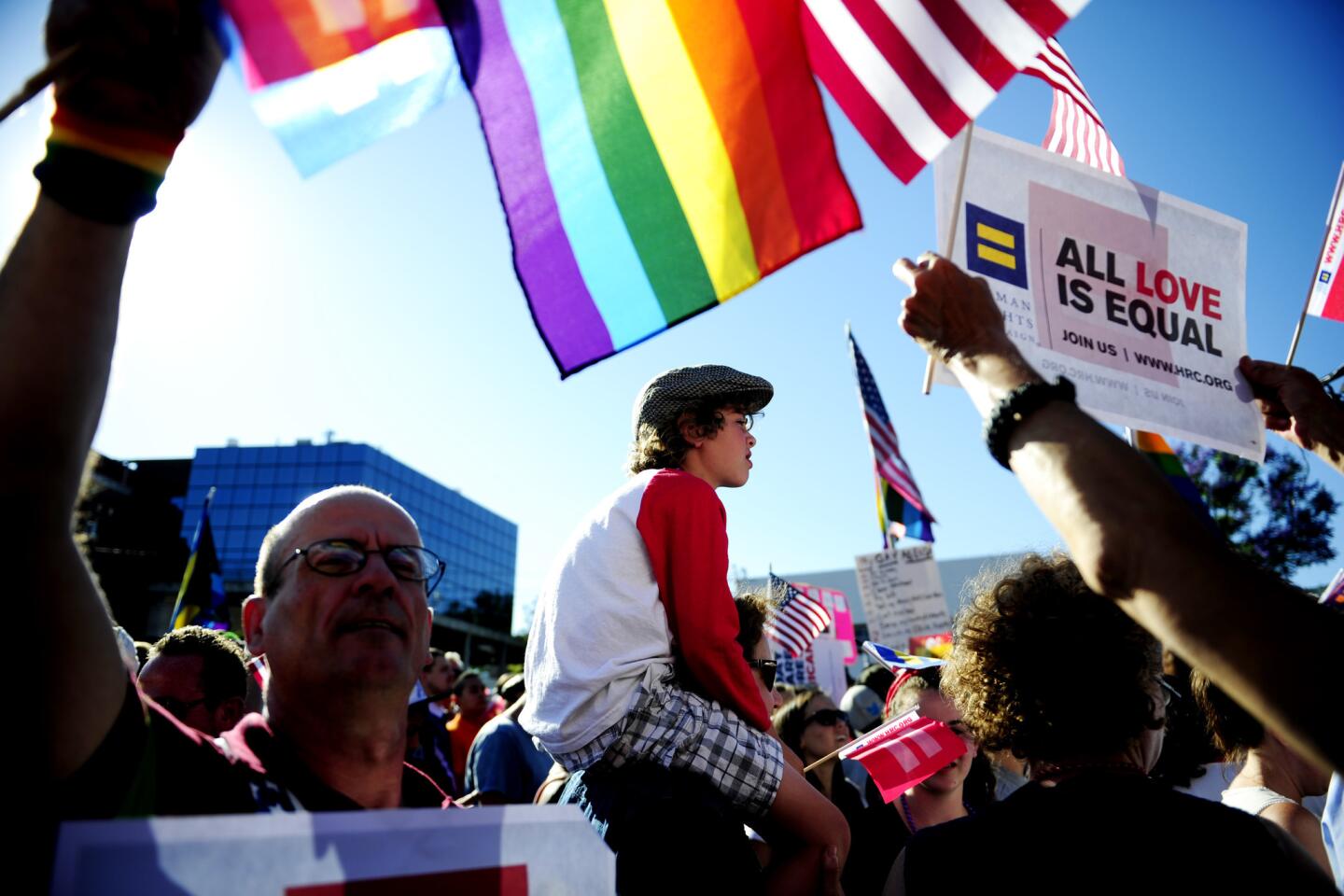Navajo Nation struggles with same-sex marriage
New Mexico has seen celebrations across the state since its highest court 10 days ago unanimously ruled it was unconstitutional to deny a marriage license to same-sex couples. Not so for the sovereign Navajo Nation, whose borders spill over into the northeast part of the state and where tribal law is clear: Such unions are banned.
Some Navajo hope to change that, buoyed by the cultural climate shift underscored when the U.S. Supreme Court in June struck down part of the federal Defense of Marriage Act. Gay marriage is permitted in the District of Columbia and 18 states, the most recent being Utah, although officials there plan to appeal a federal court decision that overturned the state’s ban on same-sex marriage.
For Navajo activists, it won’t be easy.
The Diné Marriage Act, passed in 2005 by the Navajo Nation Council, defines marriage as a relationship between a man and a woman and declares polygamy, unions between family members and same-sex marriages “void and prohibited.”
A grass-roots attempt to block it from becoming law failed when the legislature overrode a veto from the Navajo Nation’s then-president, Joe Shirley Jr.
“The Diné Marriage Act legislation is unnecessary and addresses issues already governed by existing law and by cultural values and our clan system,” Shirley said in a statement posted on the website for the advocacy group Coalition for Navajo Equality, which seeks to repeal the law.
Recently, Navajo Nation President Ben Shelly, who took office in 2011, also backed the effort to allow same-sex marriage. “We’ve got some catching up here to do with our laws, our codes and what we operate our government under,” he said in a statement.
Shelly, who served as Shirley’s vice president from 2007 to 2011, was among 14 council members in 2005 who voted against the override, short of what was needed. Sixty-two voted for the override and 12 delegates abstained.
Despite the high-level support, “only an action by the Navajo Nation Council to repeal the act would change the law,” Jared Touchin, a council spokesman, said in an email. “There is currently no such legislation that attempts to do so.”
While the law states that “the purposes of marriage on the Navajo Nation are to promote strong families and to preserve and strengthen family values,” some Navajo activists say it does the opposite.
“It goes against our tribe’s fundamental teaching of harmony in family,” said Alray Nelson, 27, an openly gay member of the Navajo Nation and part of the Coalition for Navajo Equality. “It’s hard to understand why we implemented something like this because it goes against everything we are founded upon.”
Nelson nonetheless said he was undaunted by the failed effort in 2005 because persuading the council president to veto the measure is still seen as one of the coalition’s biggest accomplishments.
“It was not popular in 2005 to support same-sex marriage,” he said, “so the political climate was already set against the coalition efforts. The coalition basically took a long nap until this year, after the Supreme Court decisions.”
The Supreme Court, in striking down part of the Defense of Marriage Act, declared that same-sex couples who were legally married had the same right to federal benefits as other married couples. The court also upheld a lower court’s invalidation of California’s Proposition 8, clearing the way for same-sex marriage to resume in the state.
Justices did not, however, require states to legalize gay marriage. Even if they had, tribes would almost certainly be exempt from the ruling because of their sovereignty.
“Moving forward, our first goal will be to repeal the act by going through the courts like they did in New Mexico,” Nelson said. “Second, we will continue to have these conversations with family members and community leaders. We are not going directly to lawmakers. We are going to the people who put them into office.”
Some tribes permit same-sex marriage. In 2008, the Coquille Indian Tribe in Oregon became the first in the U.S. to approve a gay marriage law that states “marriage” or “domestic partnership” means a “formal and express civil contract entered into between two persons, regardless of their sex.” Seven others have followed suit, including the Santa Ysabel tribe in San Diego County.
Elizabeth Kronk Warner, director of the Tribal Law & Government Center at the University of Kansas School of Law, said her research showed that tribes historically accepted same-sex unions.
“In many of our tribal cultures, we called gay, lesbian, bisexual and transgender members as ‘two spirits,’ because there was a belief that they had two spirits captured within themselves,” she said. “They were treated specially and with a lot of respect.”
Now, there is a struggle between the two-spirit concept and the newer but strong Christian influence, she said.
“I think the national trend is definitely in favor of recognizing same-sex marriage,” said Kronk Warner, a member of the Sault Ste. Marie Tribe of Chippewa Indians. “There are already several tribes who recognize same-sex marriages despite state law. ... It’s as complicated an issue among tribes as it is in individual states.”
Touchin, the council spokesman, said there was room for debate on the Navajo law.
“The increased attention placed on gay marriage over the last few years certainly has the potential to make people, including the Navajo Nation’s lawmakers, rethink the issue,” he said. “However, most would agree that the Navajo Nation has taken a conservative approach to gay marriage. … Therefore, until legislation is introduced to address the Diné Marriage Act, we cannot be certain.”
Nelson, however, is confident that change is on the horizon.
“By around this time next year, if the law is repealed ... that’s when we can be proud as a Navajo people.”
More to Read
Start your day right
Sign up for Essential California for news, features and recommendations from the L.A. Times and beyond in your inbox six days a week.
You may occasionally receive promotional content from the Los Angeles Times.

